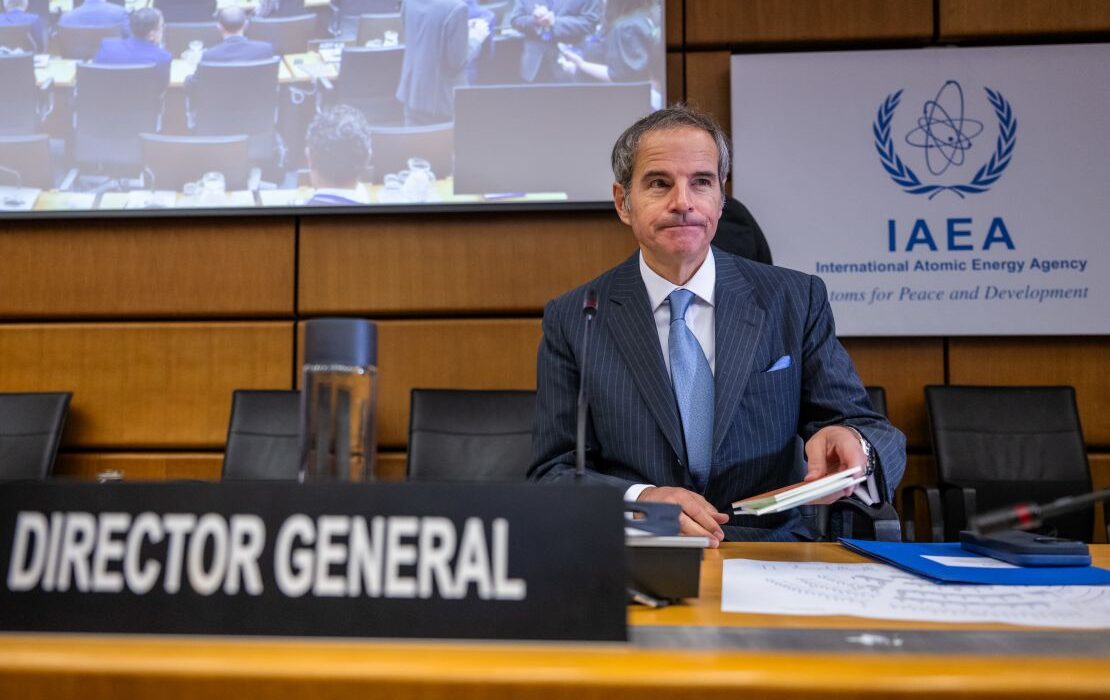Iranian President Masoud Pezeshkian has taken a decisive step by approving a law that halts cooperation with the International Atomic Energy Agency (IAEA). This move is poised to complicate any efforts by Tehran to revive its nuclear program, which has been under intense scrutiny and pressure from the international community. The decision, made on a Wednesday, follows closely on the heels of Iran’s parliament passing a law to suspend collaboration with the UN nuclear watchdog.
The rationale behind this move stems from Iran’s accusation that the IAEA has been colluding with Israel, thereby potentially enabling attacks on its nuclear facilities. The IAEA, however, has vehemently denied these allegations. President Pezeshkian’s directive to key Iranian entities such as the Atomic Energy Organization, the Supreme National Security Council, and the Ministry of Foreign Affairs to begin implementing the law underscores the seriousness of Iran’s stance on this matter.
The implementation details of this new law remain shrouded in uncertainty, but the implications are clear. By severing ties with the IAEA, Iran could potentially proceed with rebuilding its nuclear program without the oversight and inspections mandated by the international community. As a signatory to the Non-Proliferation Treaty (NPT), which mandates transparency and monitoring to ensure the peaceful nature of nuclear activities, Iran’s unilateral decision raises significant concerns on the global stage.
“We are aware of these reports. The IAEA is awaiting further official information from Iran,”
stated an IAEA spokesperson in response to the developments. The international community, including Germany, has expressed deep reservations about Iran’s actions. Germany emphasized the importance of diplomatic engagement and collaboration with the IAEA for a peaceful resolution to the nuclear issue.
The recent spate of attacks on Iran, including strikes by Israel and the United States, has heightened tensions in the region. These actions, coupled with Iran’s resolve to continue enriching uranium despite the damage to its facilities, underscore the volatile nature of the situation. The IAEA’s findings regarding Iran’s nuclear activities, particularly the enrichment of uranium to near weapons-grade levels, have raised serious concerns and led to censure from the international community.
“Iran’s Supreme Leader Ayatollah Khamenei has consistently denied any intentions to develop nuclear weapons, citing religious prohibitions against such arms. The country’s decision to ramp up uranium enrichment followed the US withdrawal from the nuclear agreement in 2018,”
shedding light on the complex dynamics at play.
The ongoing standoff between Iran and the international community, especially the IAEA, reflects broader geopolitical tensions and the delicate balance of power in the Middle East. The repercussions of Iran’s decision to suspend cooperation with the UN nuclear watchdog are far-reaching and could have implications for regional stability and global security.
As the situation continues to evolve, it is imperative for all stakeholders to tread carefully and seek diplomatic avenues for resolving the nuclear impasse. The fate of Iran’s nuclear program and its implications for international relations hang in the balance, underscoring the need for nuanced diplomacy and strategic engagement to prevent further escalation and foster peace in the region.

